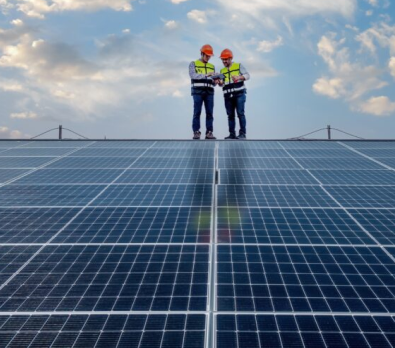
EV Charging with Agile Octopus just got easier thanks to Powerverse
8 September 2024
Charging and maintaining your EV: The costs and the requirements
16 September 2024What are grid services?
Practically everyone in the Western world is a consumer.
But recent years have seen the rise of the “prosumer”—a person who both consumes and produces.
One of the areas where prosumers have rapidly emerged is in the energy industry.
Technological advances have enabled individuals to shift from being electricity consumers to electricity prosumers through the provision of “grid services”.
Such services allow individuals and households to engage with the electrical grid in a way that goes way beyond simple energy consumption. It involves a deeper integration of ordinary energy users into the experience of electricity generation and operation.
The result? A more efficient, resilient and pro-renewable energy system.
So, let’s have a look at some of the more popular grid services currently available to “prosumers” in Britain.
Load shifting
Load shifting is a grid service that enables consumers to adjust the timing of their energy use to save on costs and boost grid stability. It achieves this by enabling householders to run high-energy-use appliances like washing machines, dryers and dishwashers, as well as chargers for electric vehicles (EVs), during off-peak hours when electricity prices are lower.
Not only is this kinder to consumers’ pockets, but it eases the strain on the grid, thus making the energy system a lot more stable.
Smart EV charging
Load shifting is a feature you’ll find in smart charging. This is a service that connects your EV, charger and the grid to optimise those moments when you’re topping up power in your car.
The connection between the three typically occurs via a smartphone app, like the standout Powerverse app and VCHRGD charger. Through the app, you can adjust the process using AI insights and real-time data such as time of day, electricity tariffs, and your EV battery level.
The benefits of smart EV charging are huge. After all, a big plus to having an EV charger at home is the convenience of plugging in and powering up whenever you want.
However, if you, like countless others, are charging your car at the end of the day as you settle in for an evening of Netflix ‘n’ chill, chances are you’ll overload the grid.
Instead, schedule charging during off-peak hours when electricity rates are lower or when renewable energy sources like solar or wind are abundant. This doesn’t just save on costs and carbon, it also helps balance the grid by reducing demand during those high peak periods.
Local export schemes
If you have solar panels or a small wind turbine you can save money on energy bills– and make some cash in the process.
Under the Smart Export Guarantee (SEG) scheme, launched by the British government in January 2020, participating energy companies will buy any electricity that you feed back to the grid.
You’ll need a smart meter installed. This will enable your energy usage to be tracked in real-time and the data sent straight to your SEG licensee.
And while the amount of money you can make depends on the energy supplier you’ve signed up with, current findings suggest you could earn upwards of £165 a year.
Virtual power plants (VPPs)
Virtual Power Plants (VPPs) bring together various small and medium energy sources to act as a single, unified power plant. These sources include everything from solar panels and wind turbines to hydro systems and heat pumps, along with energy storage systems, such as batteries.
The result is a more constant generation of renewable energy and a financial boon for the small suppliers who can pocket extra cash by selling any excess power back to the grid.
Unlike traditional power plants that waste resources during low-demand periods, VPPs also provide energy on demand, which helps make the grid more efficient.
You can also expect much lower energy bills with VPPs, as they work by making the most out of cheaper and greener energy sources like solar and wind.
Plus, they boost resilience against outages by creating local networks of power generation and storage. This ensures essential services stay running during blackouts and other crises.
Final words
These are just some of the grid services radically transforming the energy industry in the UK.
As energy solutions, they give consumers greater control over their power usage. Innovations like smart EV charging, virtual power plants, and local export schemes (unthinkable only a few decades ago!) are enabling ordinary people like us to become active rather than passive participants in the energy market.
As a result, we can make decisions that enable us to cut costs, reduce our carbon footprint, and make our energy system more secure.
Embracing these grid services and more is not just a trend, then.
Rather it’s a way forward for both the energy industry and “prosumers” determined to play a role in shaping a cheaper, greener, more efficient energy system.
About Powerverse
We’re industry experts in home energy management. Our easy-to-use app is built for your future electric home. It will effortlessly sync your solar, battery, heat pump, EV charger and more, helping you cut costs and your carbon footprint on your way to becoming energy-independent.
If you’re ready to explore how VPPs and grid flexibility for your business watch our webinars or get in touch for a personalised strategy call.

